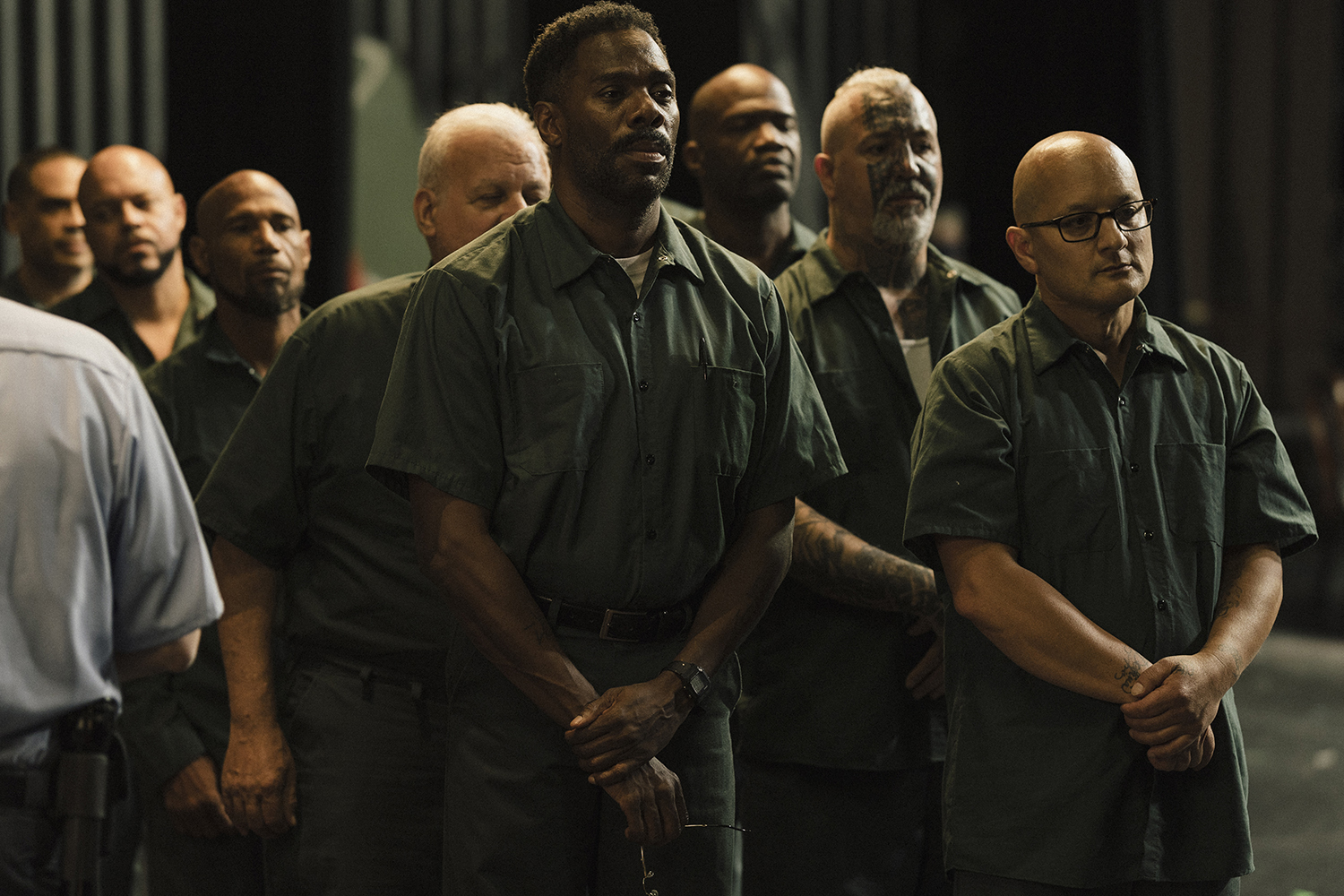
Colman Domingo as John "Divine G" Whitfield and Sean San José as Mike Mike in a scene from "Sing Sing." (Photo credit by Dominic Leon)
Labor Day weekend is upon us, but even though summer isn't quite over yet, movie buffs are already feeling the winds of fall. Marvel's “Deadpool & Wolverine” is expected to retake the top spot at the box office in its sixth week of release during a sleepy weekend at the movies, but across the pond, the 81st Venice Film Festival is whetting appetites and kicking the hype machine into high gear. Closer to home, cinephiles are flocking to Telluride, Colorado, for a taste of what the rest of us can expect over the coming months.
But those of us currently unable to feel festival fever firsthand don't have to feel left behind. Two high-profile releases are finally available for mainstream consumption after causing a stir at film festivals across the nation, including here in Miami. Both films take a sensitive, humane approach in their depictions of mass incarceration and two rehabilitation programs that shine a light and provide a ray of hope for the inmates who may or may not be able to plan and build a life after lockup. Which one is the more indelible portrayal? Let's dig in.
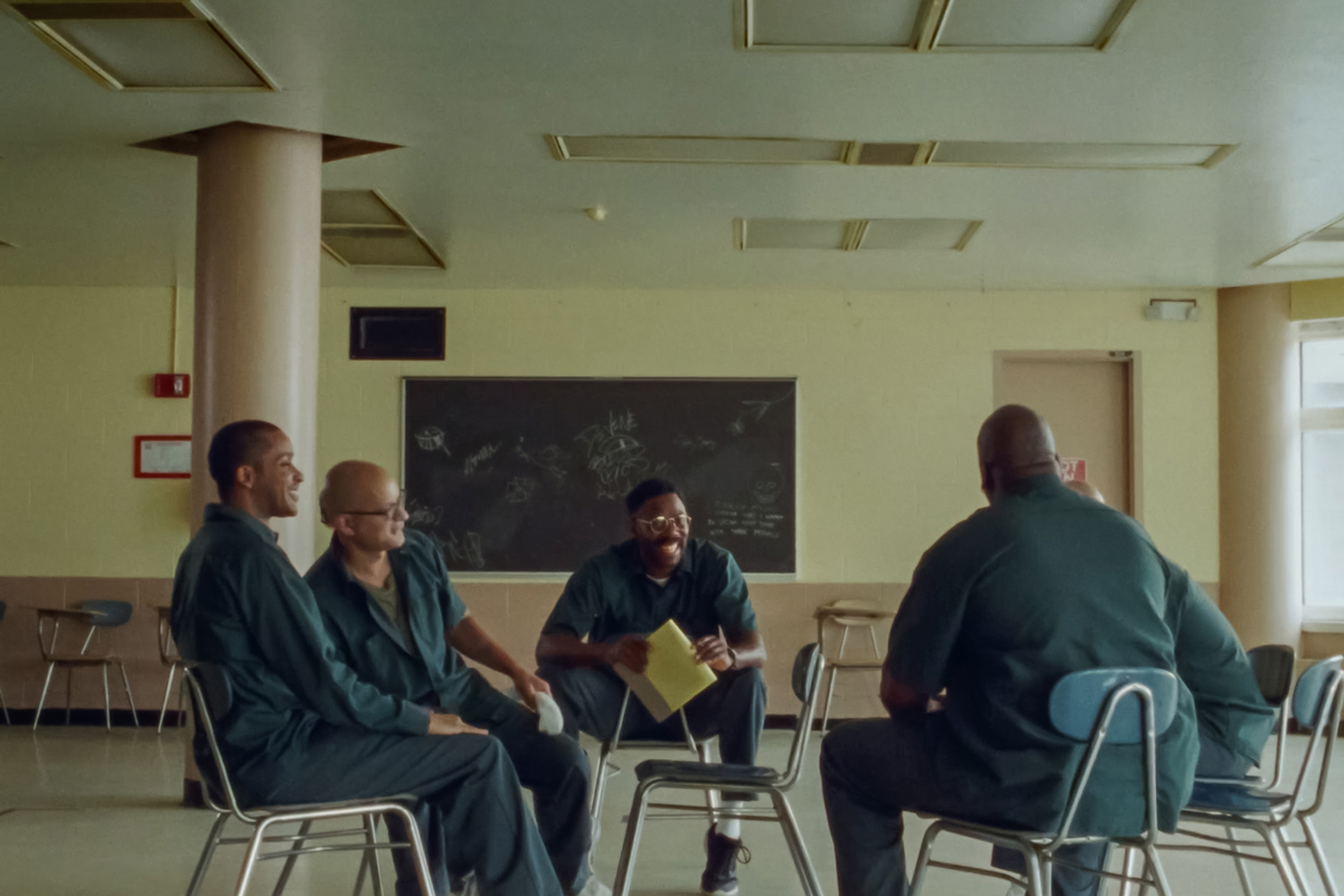
David “Dap” Giraudy as himself, Sean San José as Mike Mike and Colman Domingo as John "Divine G" Whitfield in a scene from "Sing Sing." (Photo courtesy of A24)
“Sing Sing”: “All the world's a stage,” William Shakespeare wrote in “As You Like It” four centuries ago, but for the men taking the stage at New York's Sing Sing Correctional Facility, the stage becomes their world, away from the four walls of their cells. Stepping into the roles they play provides an escape hatch, as well as a taste of the lives they left behind.
A portrait of the inmates who take part in the Rehabilitation Through the Arts' theater workshop, which was founded at Sing Sing, seems like a slam dunk subject for a movie, and director Greg Kwedar appears to be making all the right moves, shooting the film in fuzzy 16mm film and, with a couple of notable exceptions, casting most of roles with former Sing Sing inmates playing themselves.
So why does the movie end up feeling like a chore after a promising start?
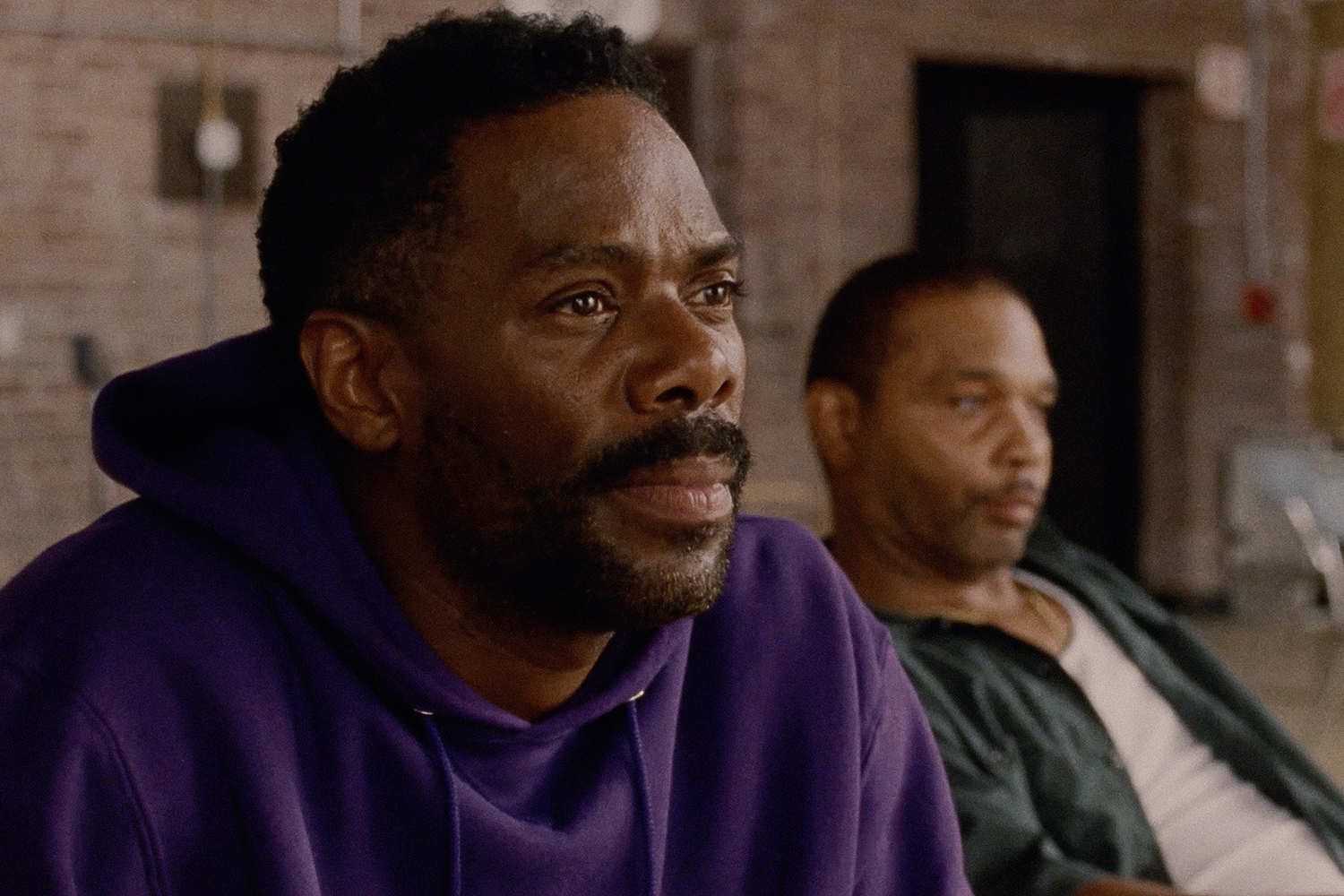
Colman Domingo as John "Divine G" Whitfield in a scene from "Sing Sing." (Photo credit by Pat Scola)
Don't look at star Colman Domingo, one of the aforementioned exceptions. The Oscar nominee lends his magnetism and irresistible screen presence to the role of RTA veteran thespian John “Divine G” Whitfield. The way he attacks a “Midsummer Night's Dream” monologue at the start of the movie suggests we're in for a treat. If only.
What gives “Sing Sing” its narrative juice is the rivalry that develops between Whitfield and Clarence “Divine Eye” Maclin (played by Maclin) after Maclin, a newcomer to the theater arts, expresses interest in the lead role that Whitfield was assuming would go to him. Maclin, who looks like the love child of Anthony Ramos and Terrence Howard, is brash, cocky, territorial and in his new frenemy's face about everything. Brent Buell (“Sound of Metal's” Paul Raci), the theater director developing a new play with this troupe, senses the sparks and tries to ensure everyone has a say in the creative process.
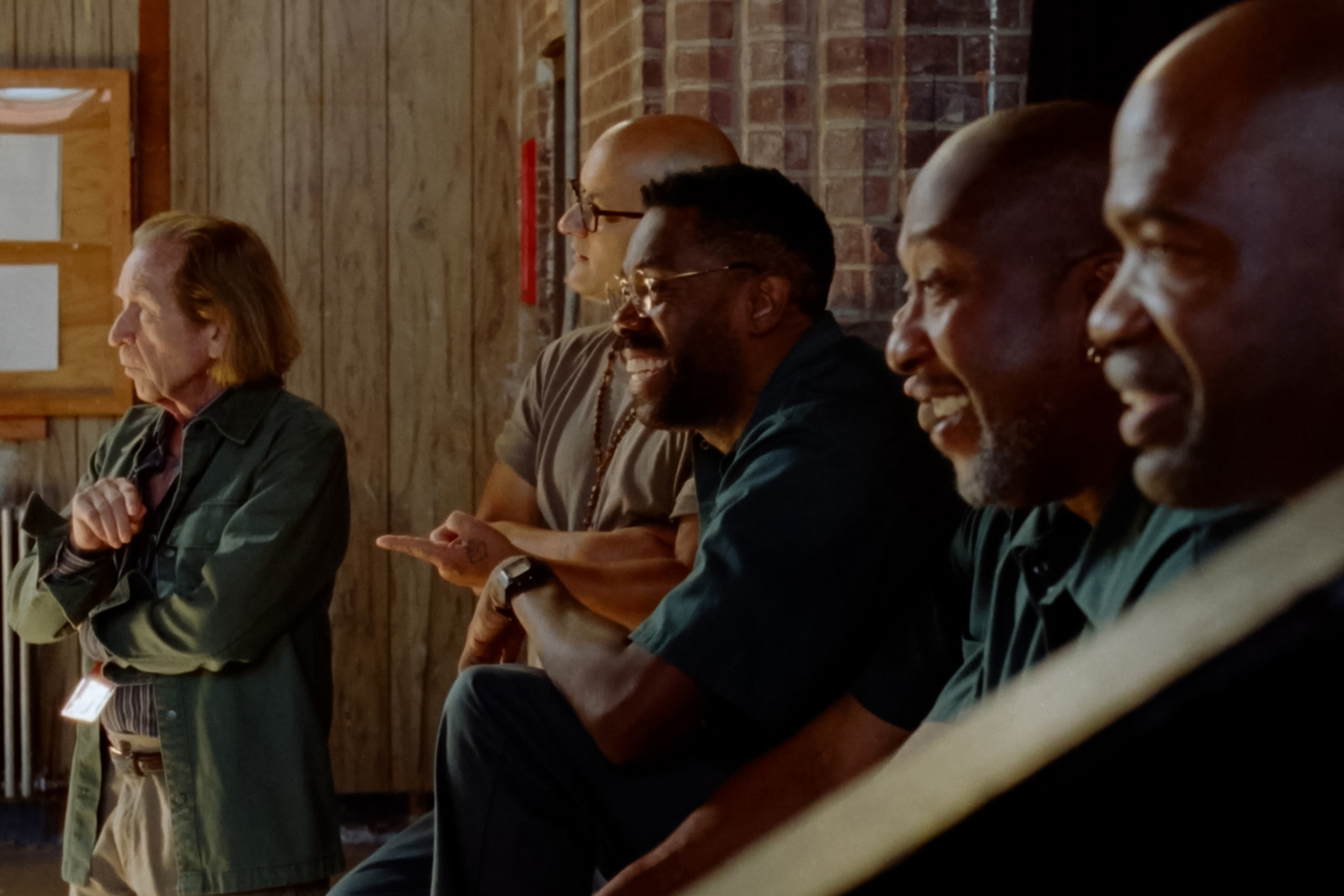
Paul Raci as Brent Buell, Sean San José as Mike Mike, Colman Domingo as John "Divine G" Whitfield, Sean "Dino" Johnson as himself and Mosi Eagle as himself in a scene from "Sing Sing." (Photo courtesy of A24)
The tensions and personal breakthroughs that this collaboration yield are rife with potential for a riveting night at the movies, but “Sing Sing” never stops feeling like homework. The material is begging to be treated like “The Full Monty” behind bars, but Kwedar siphons off the entertainment value in order to attain those cinema-of-quality airs that earmark the film as prestige fare.
But this does not make “Sing Sing” better. It just makes the film more tedious, and it undermines rather than enhances the populist urgency of the subject matter, something that's all the more frustrating when you take into account that the play being workshopped is a broad comedy. The worst offender here is Bryce Dessner's reductively solemn music score, which aims for the gravity of Aaron Copland without evoking his grace. To call it obtrusive would be an understatement.
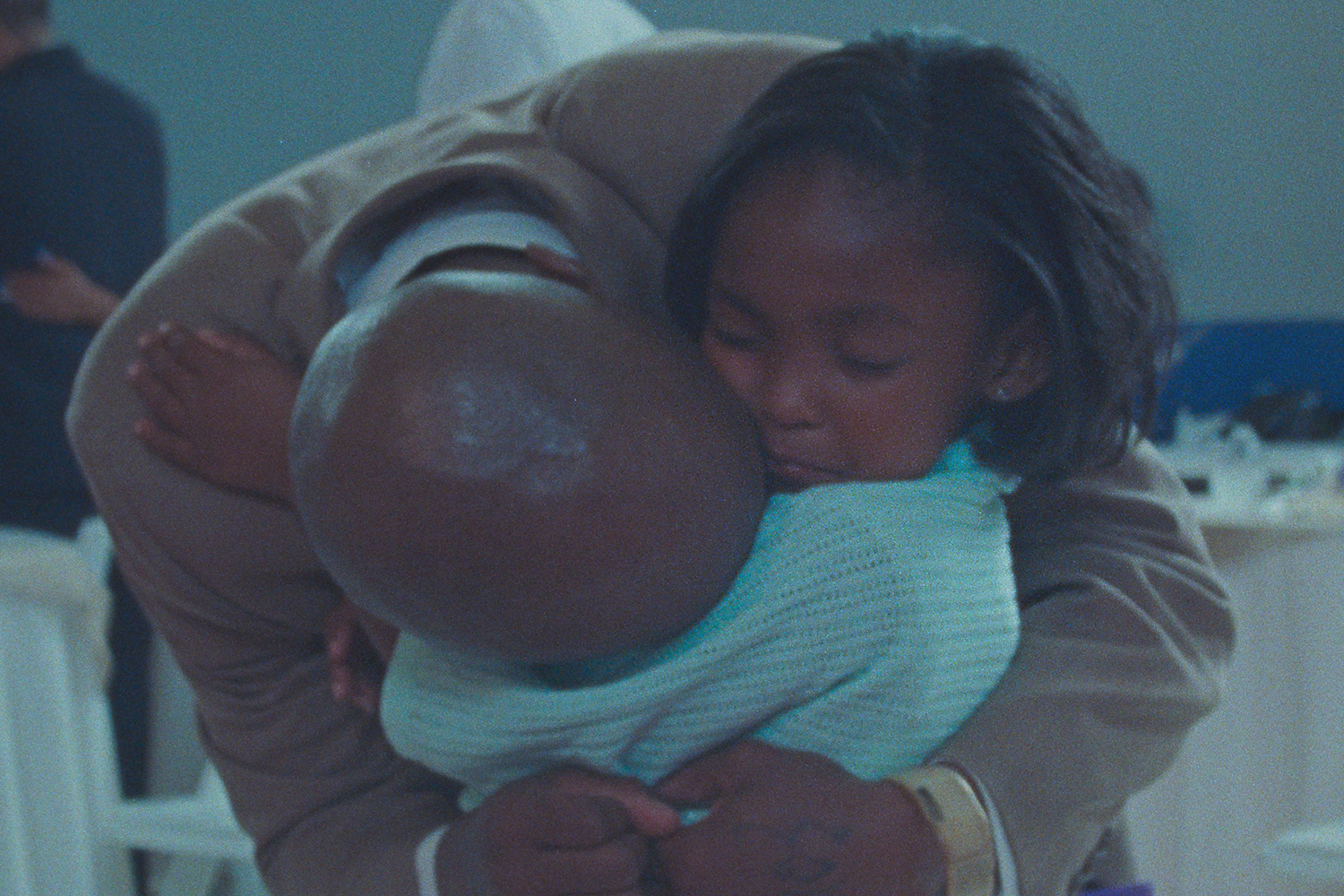
Aubrey and her father Keith share an embrace in the documentary "Daughters." Photo courtesy of Netflix.
By trying too hard to make eat-your-veggies cinema, Kwedar flattens “Sing Sing's” appeal. It's hobbled by the same Amerindie earnestness that marred “Jockey,” a 2021 equestrian character study, starring Clifton Collins Jr., that Kwedar co-wrote. It turns what ought to have been an absorbing prison drama into a therapy session that tries your patience, a tiresome actor's exercise that keeps reminding you of its self-importance.
Domingo still makes a compelling stage diva, even as his character's arc feels awfully contrived for a movie that's going for lived-in naturalism. But there's only so much he can do in a film so eager to elicit applause that it puts the cart before the horse. Its overarching intent is to collect plaudits and awards like Infinity Stones.
“Daughters”: They walk toward the inmates in single file, dressed up to the nines but filled with trepidation about how this reunion will make them feel. This simple yet powerful image, showing predominantly Black girls of various ages about to spend the day with their incarcerated fathers, in some cases for the first time in years, defines this knockout of a documentary about the implementation of the Date with Dad program at a prison in Washington, D.C.
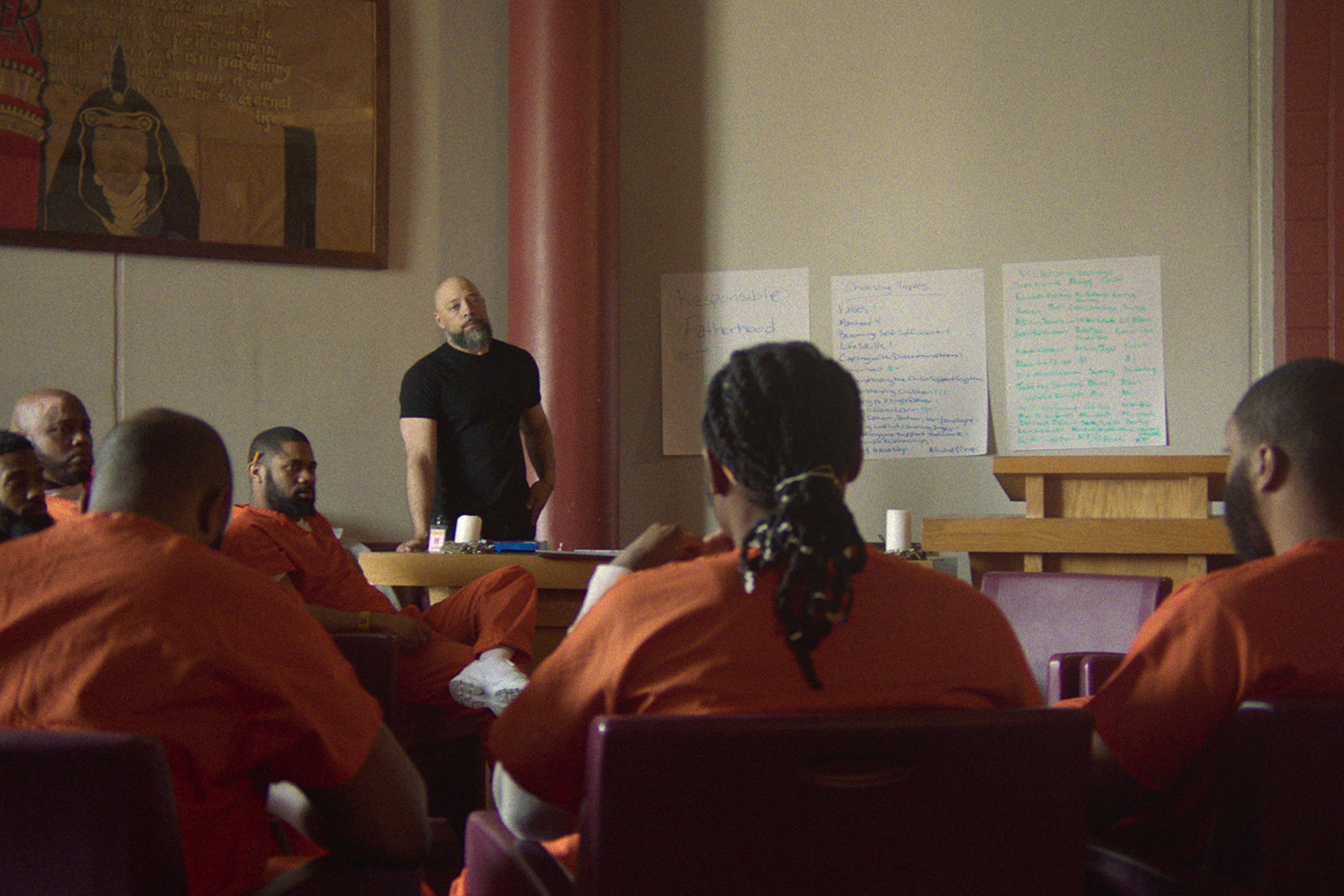
Life coach Chad Murray helps prepares the inmates of a a Washington, D.C. jail for "an emotional roller coaster in the documentary "Daughters." (Photo courtesy of Netflix)
Directors Natalie Rae and Angela Patton focus on four girls and their dads before, during and after a Daddy Daughter Dance that is the highlight of the program that was first launched in Richmond, Virginia. Perhaps most memorable of all is Aubrey, a precocious 5-year-old who boasts that she's “the smartest one in my class.” Her dad, Keith, is “coming home in seven more years.” Ten-year-old Santana, on the other hand, is “done shedding tears” for her absent father Mark. Whereas Aubrey is still holding on to her innocence, you get the sense the weary Santana has been forced to grow up too quickly.
Although the film devotes considerable time to the parents (the girls' mothers make a strong impression), the filmmakers' emphasis, as the title suggests, is on these girls who are navigating childhood and adolescence without a paternal figure in their lives, something that, Rae and Patton point out, is further complicated by more and more prisons ending visitations that permit touching.
The filmmakers could have easily stepped on a soapbox. Instead, they take a step back, and they listen to these girls. We hang out with them in their bedrooms, we follow them to the laundromat and the supermarket. We hear about their goals and fears, but also about the foods they like, how they feel about their siblings and their pets. And yes, they talk about their dads.
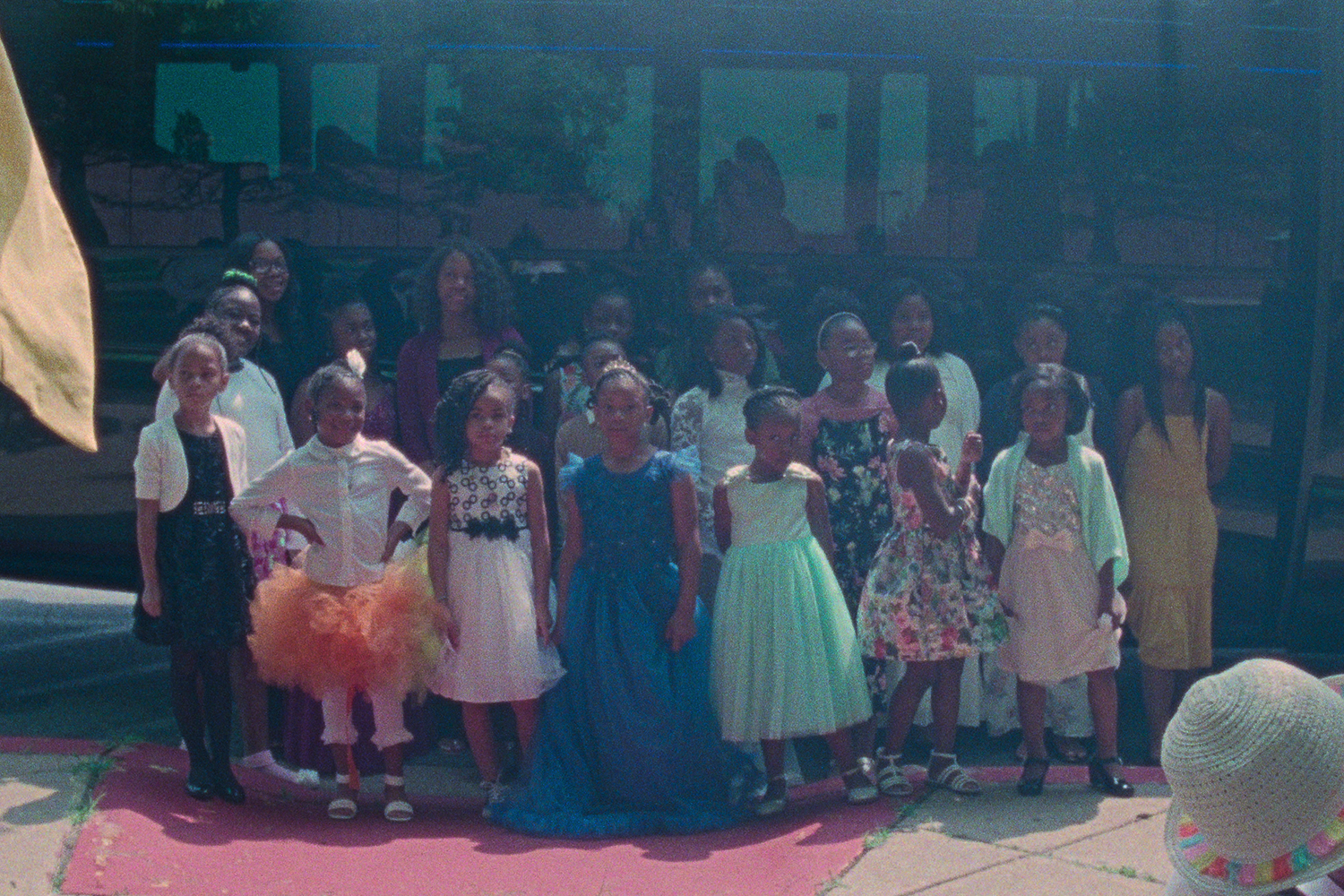
Aubrey (front row, right) and other girls attending A Date with Dad at a Washington, D.C. jail in the documentary "Daughters." (Photo courtesy of Netflix)
Meanwhile, their fathers are taking part in a 10-week coaching program prior to the dance. Chad, the fatherhood life coach who presides over these meetings, warns the inmates that the upcoming reunion “is going to be an emotional roller coaster.” Rae and Patton make viewers feel like they're in the room. They do a much more effective job of placing us in these inmates' headspace than what Kwedar musters up in “Sing Sing.”
Editors Troy Lewis and Adelina Bichis seamlessly glide back and forth between the children and their fathers, leading up to the dance, for which cinematographer Michael Cambio Fernandez trades his digital equipment for 16mm film cameras. The use of celluloid imbues the sequence with the intimacy of a home movie, as these men decked out in suits laugh, cry, hug and dance with their children. Because we have been on every step of this journey with them, it is a cathartic moment for the viewer as well.
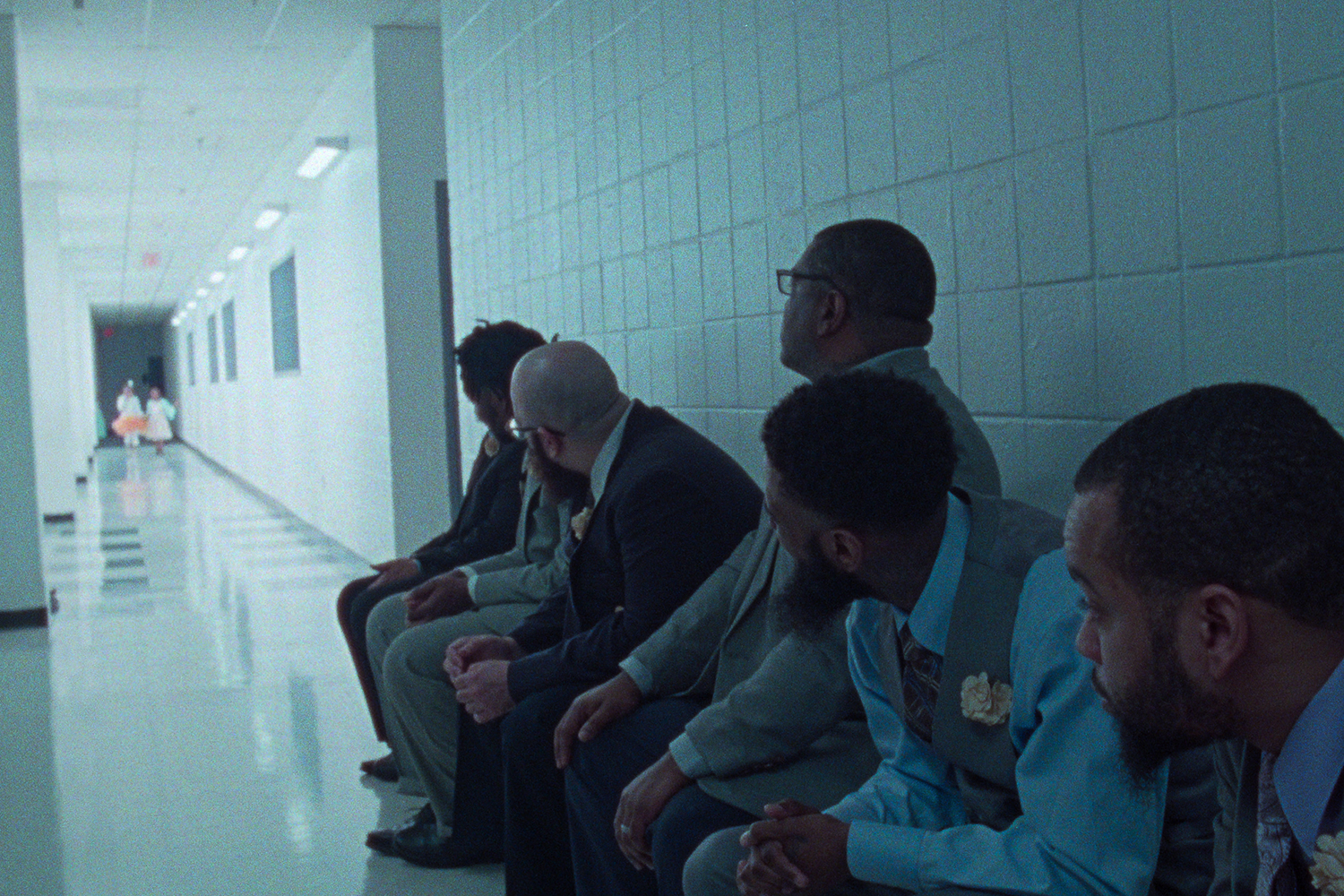
The inmates at a Washington, D.C. jail get a first glimpse of their daughters prior to the father-daughter dance in the documentary "Daughters." (Photo courtesy of Netflix)
But “Daughters” doesn't end there. Rae and Patton follow their subjects for nearly a decade, so we witness setbacks and triumphs, dreams achieved and dashed, against the relentless passage of time. In its balance of euphoric highs and sobering reality checks, the documentary is reminiscent of “Hoop Dreams,” Steve James' portrait of inner-city Chicago boys who aspire to be basketball pros. The quiet sensibility on display reminds me even more of documentarian Barbara Kopple and her gift for putting a human face on social issues with vérité immediacy,
There is no doubt that Rae and Patton, the founder of the nonprofit Girls For A Change, share this gift. In “Daughters,” a wrenching and tender portrait of hope and disillusionment, they convey their call for prison reform by simply letting the youngest people impacted by a penal code that separates them from their fathers tell us who they are.
“Sing Sing” is showing for one more week at AMC Sunset Place. Its distributor, A24, has not specified a date for when it will become available on Video on Demand, but an announcement is expected soon. After winning awards at the 2024 Sundance and Miami film festivals, “Daughters” is now streaming on Netflix.




